Hippocrates, known as the father of medicine, said, “Let food be thy medicine and medicine be thy food.” This quote highlights the role of nutrition in our health. Protein, a key nutrient, is vital for our bodies. It boosts energy, strength, and muscle growth. It also helps with hormone regulation, digestion, and oxygen transport.
By choosing the right protein foods, you can enhance your health. This is a great way to improve your overall well-being.
Studies show that eating more protein can help with weight loss. For example, overweight women might eat 441 fewer calories daily. High-protein diets also build muscle and increase strength, backed by many studies.
Protein’s benefits extend beyond physical health. It’s good for your bones too. People who eat more protein have a lower risk of osteoporosis and fractures.
Key Takeaways
- Incorporating protein into your diet can increase energy and strength
- A high protein diet can lead to significant weight loss and improved muscle growth
- Protein is essential for regulating hormones, digesting food, and transporting oxygen throughout the body
- Higher protein intake is linked to better bone health and a lower risk of osteoporosis and fractures
- Regular consumption of protein snacks can help minimize unhealthy snacking behaviors
- The National Academy of Medicine recommends a minimum protein intake of 0.8 grams per kilogram of body weight per day
Understanding Protein: The Building Block of Life
Protein is made up of amino acids, which are the building blocks of life. It has 20 different amino acids, including 9 essential ones that we must get from food. Knowing the types of protein sources and their benefits is key.
Lean meats, fish, and eggs are complete protein sources because they have all essential amino acids. Plant-based sources like beans and tofu are often missing some amino acids. But, mixing different plant-based foods can give you all the amino acids you need.
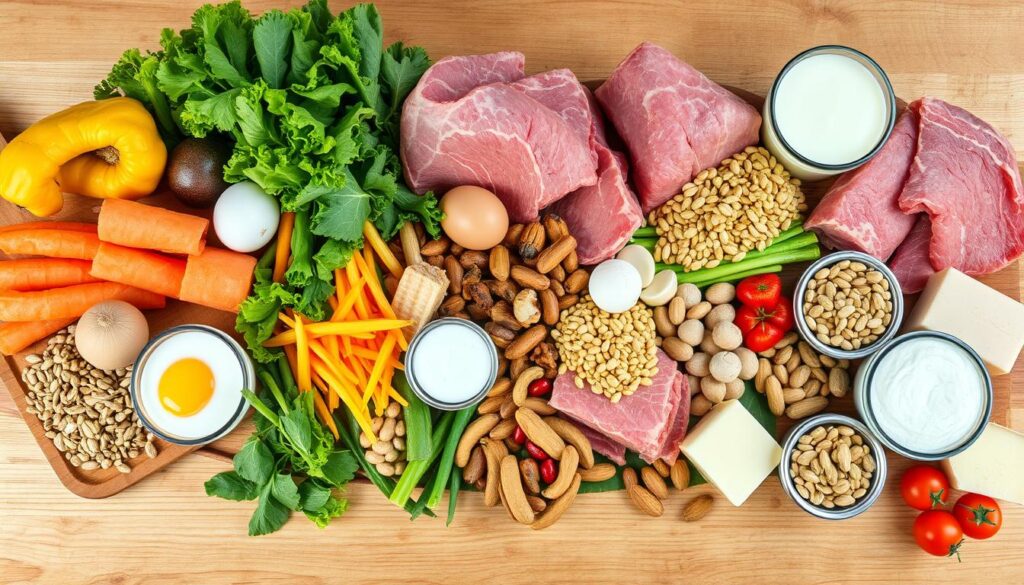
It’s important to know how easily different proteins are digested. Animal proteins like meat and dairy are very digestible, around 90%. Plant-based proteins like legumes and grains are less digestible, between 60-80%. Knowing this helps you choose the right proteins for your diet.
What Makes Protein Essential for Your Body
Protein is vital for many body functions, like repairing tissues and growing muscles. It makes up 15% of our body weight and is a key energy source. Each gram of protein gives us 4 kcal, making it essential for our health.
Different Types of Protein Sources
There are many protein sources, both animal and plant-based. Complete proteins, like lean meats and eggs, have all essential amino acids. Incomplete proteins, like beans, are missing some amino acids. Some plant-based foods, like quinoa, are complete proteins, great for plant-based diets.
Complete vs Incomplete Proteins Explained
Incomplete proteins can be mixed to make a complete protein. For example, combining whole grains with legumes or nuts with seeds gives you all essential amino acids. Complete proteins, like lean meats, have all amino acids on their own, making them a top protein source.
The Science Behind Protein’s Impact on Your Health
Protein is key for many body functions like hormone balance, digestion, and oxygen transport. Eating a high protein diet can speed up recovery after working out and prevent muscle loss. The advantages of protein are vast, and eating protein-rich foods can greatly improve your health.
Protein helps regulate hormones, aids digestion, and carries oxygen. Plant-based protein options, like legumes and nuts, work just as well as animal products. A smart high protein diet boosts muscle growth and strength, making it vital for a healthy life.
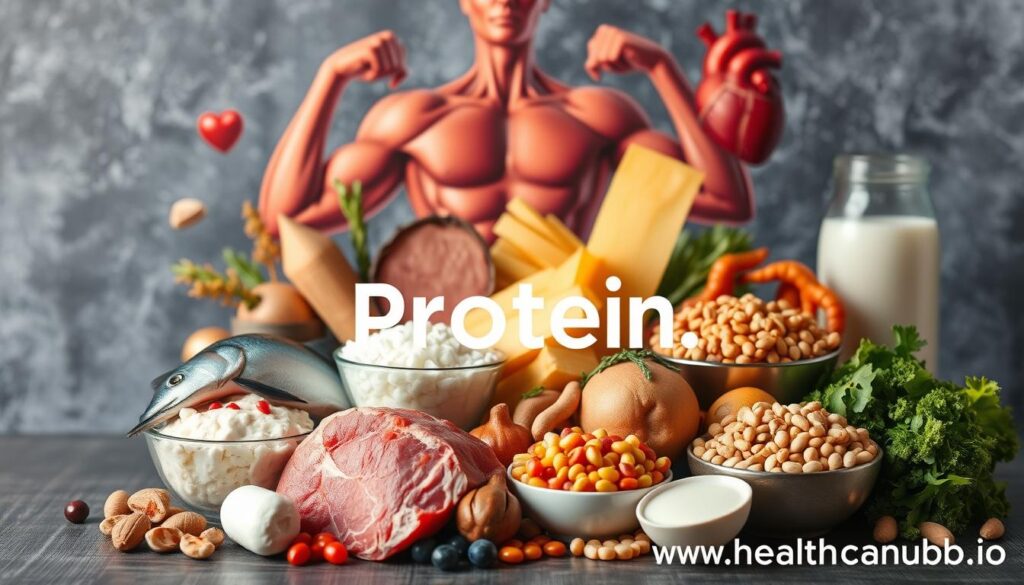
Protein also aids in weight control. A high protein diet boosts calorie burn and keeps you feeling full, aiding in a healthy diet. With many protein-rich foods out there, adding more protein to your meals is simple. Start seeing the benefits for yourself.
Optimizing Your Daily Protein Intake for Maximum Benefits
To get the most out of protein, you need to make sure you’re getting enough every day. The amount of protein you should eat depends on your age, sex, and how active you are. By planning your meals well and mixing different protein sources, you can meet your body’s needs.
If you’re not getting enough protein from food, supplements can help. The goal is to find a balance that fits your lifestyle and health goals. By focusing on your daily protein intake, you can fully benefit from this important nutrient and improve your health.


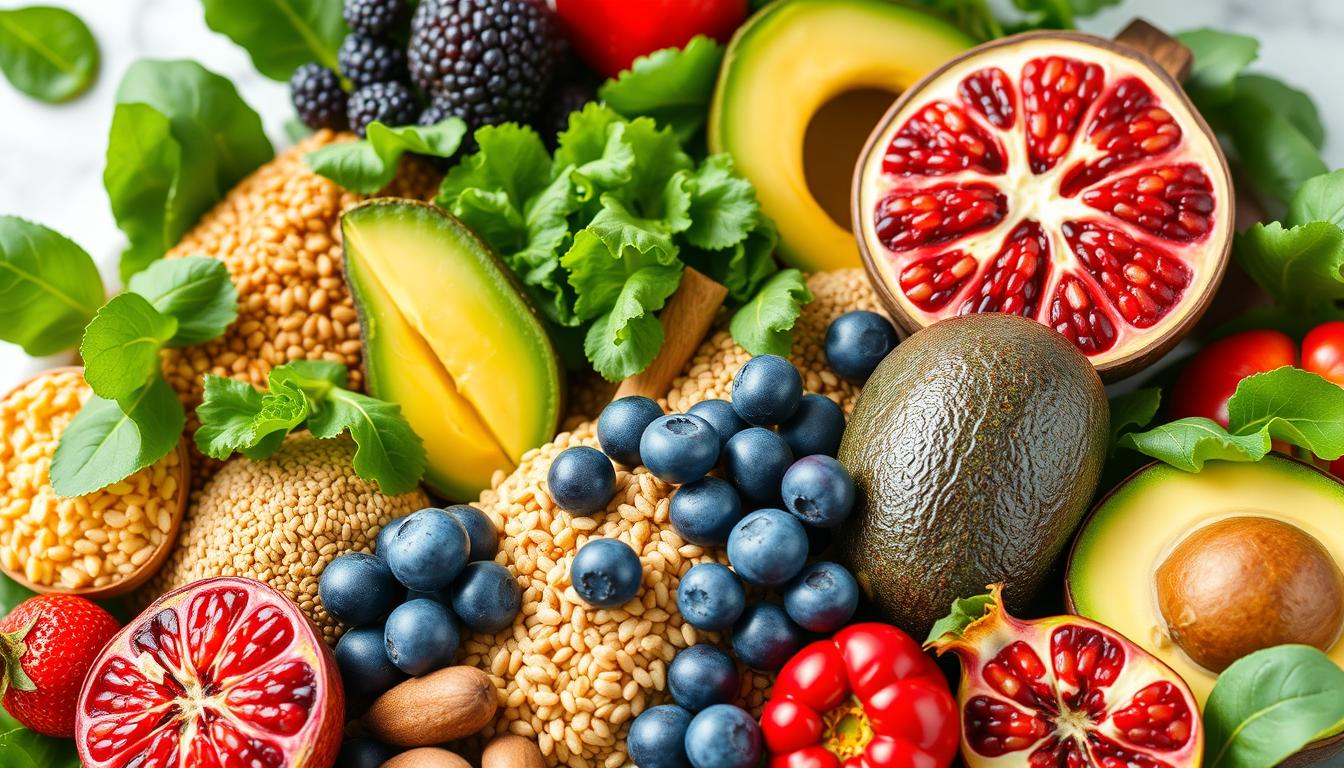



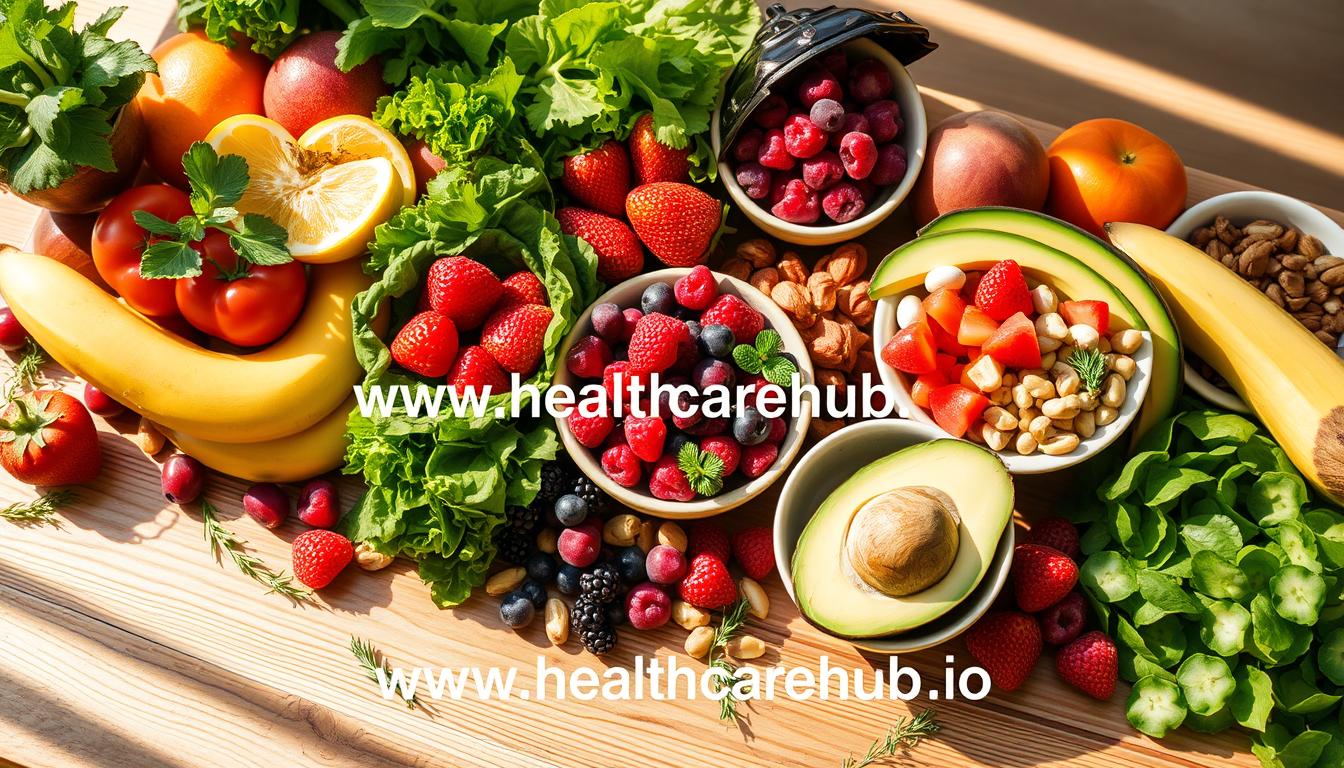




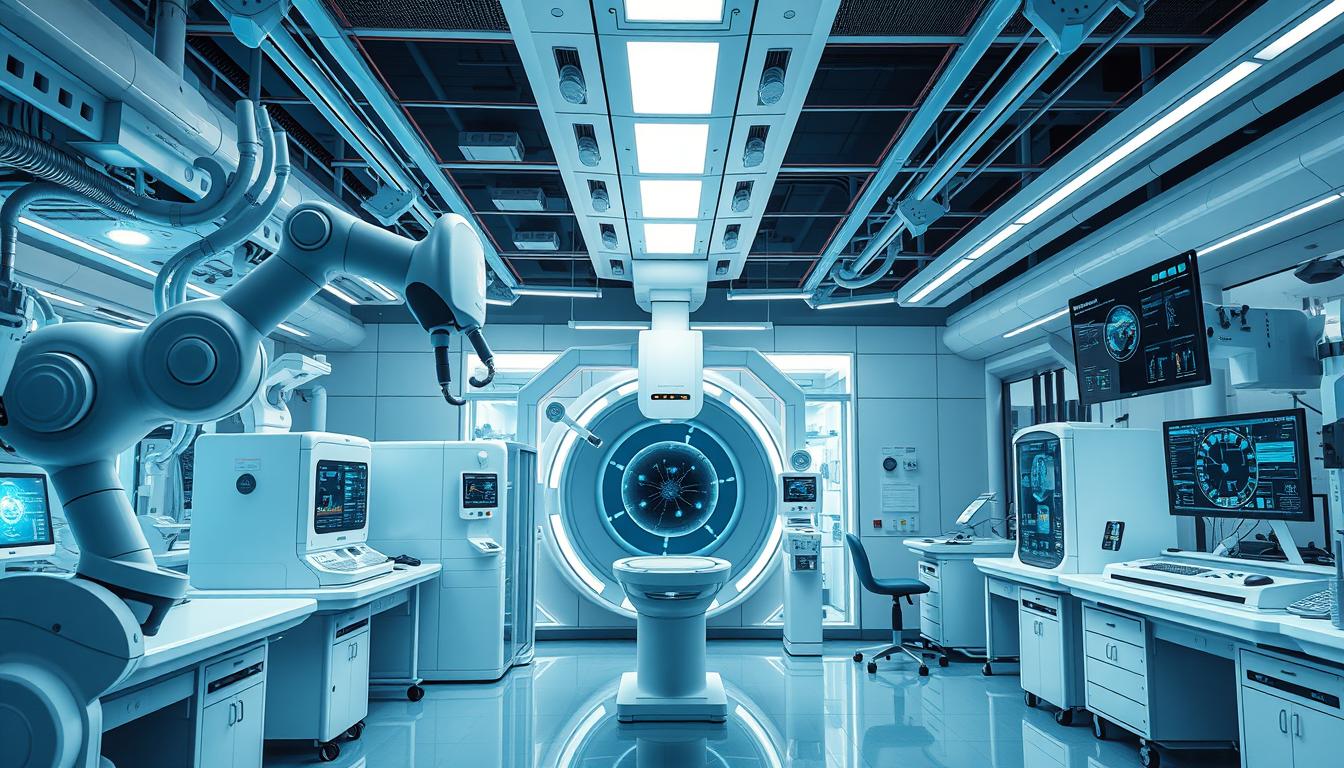


Leave a Reply